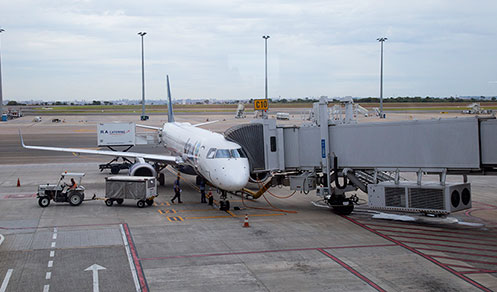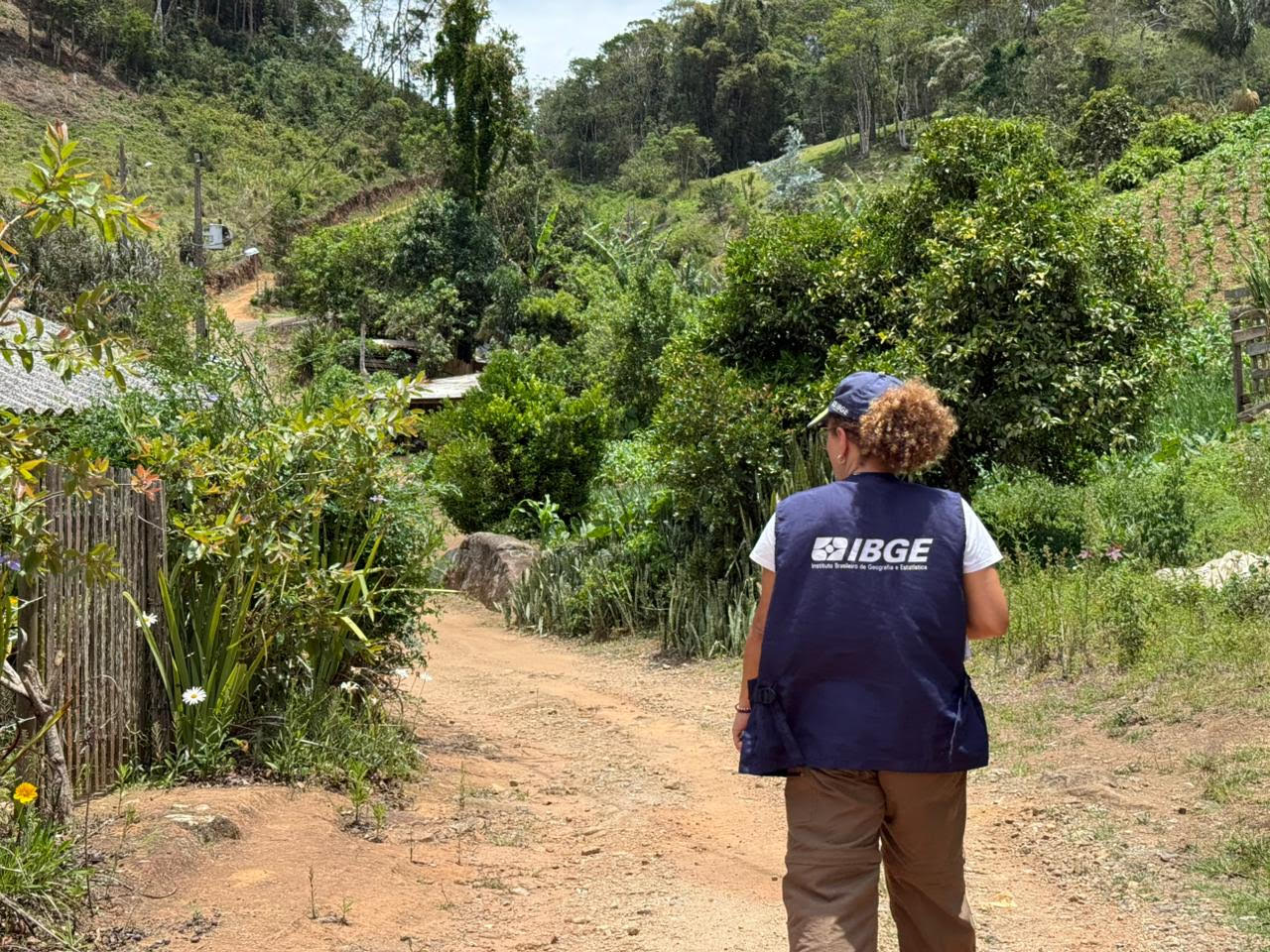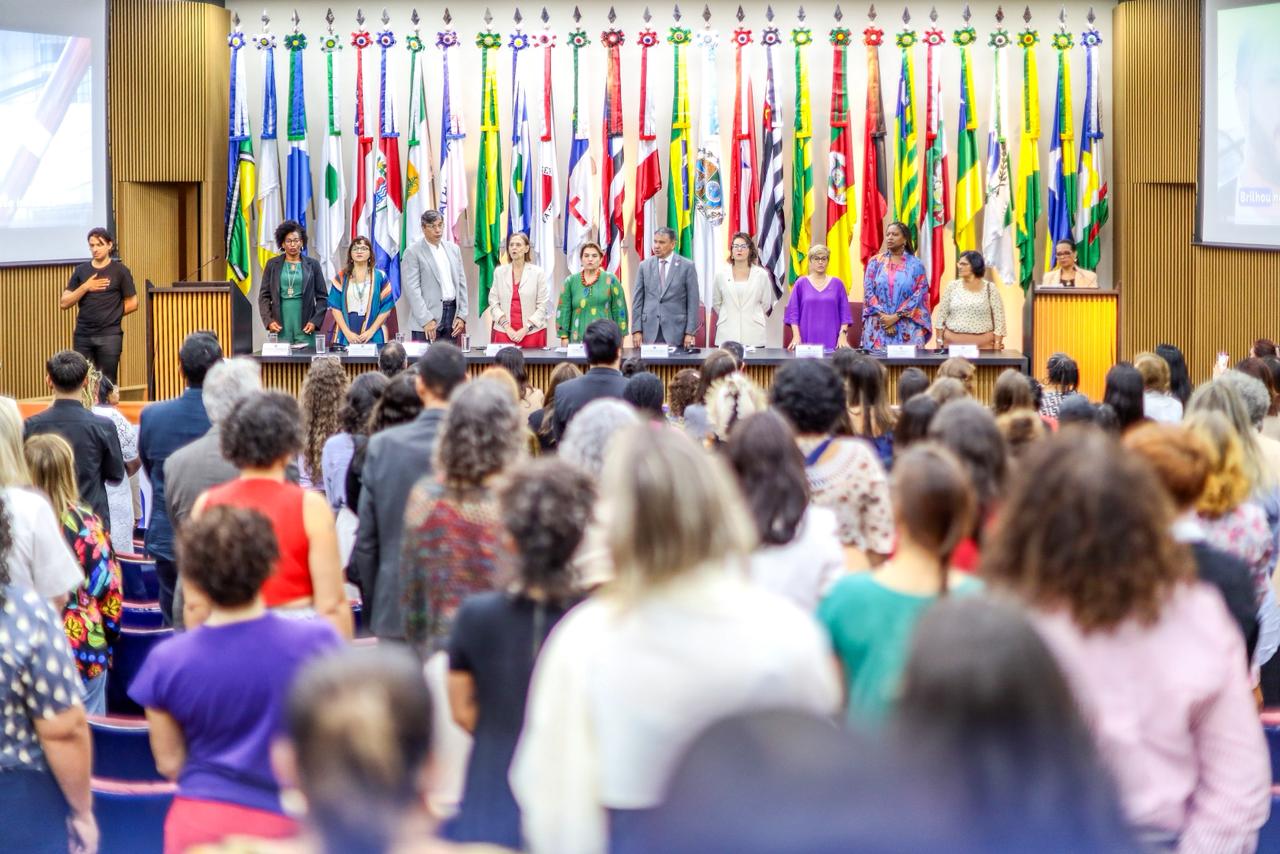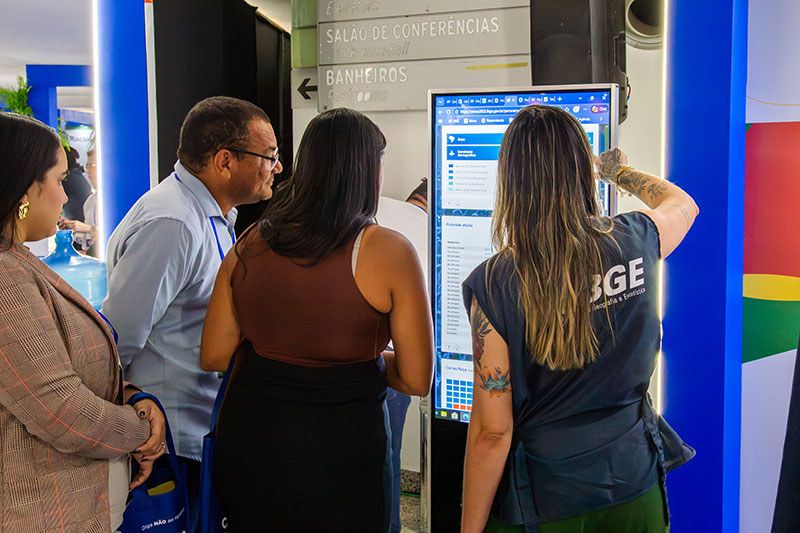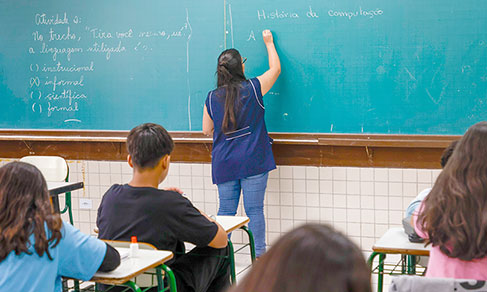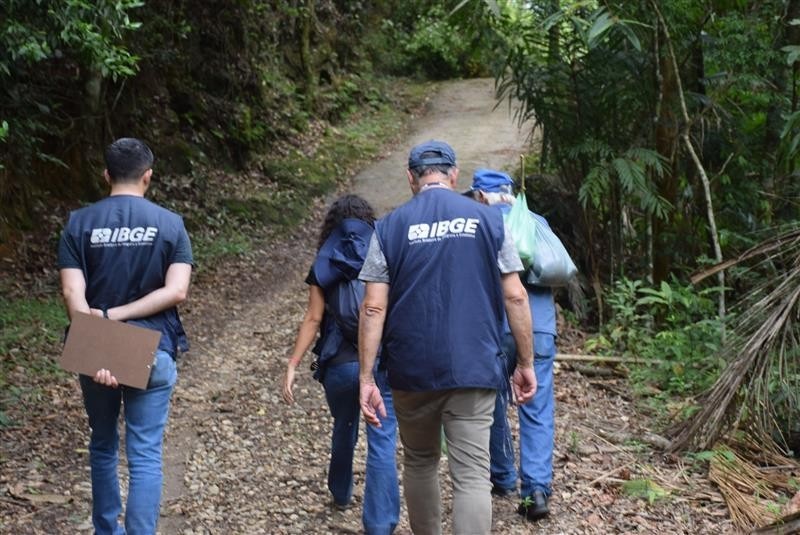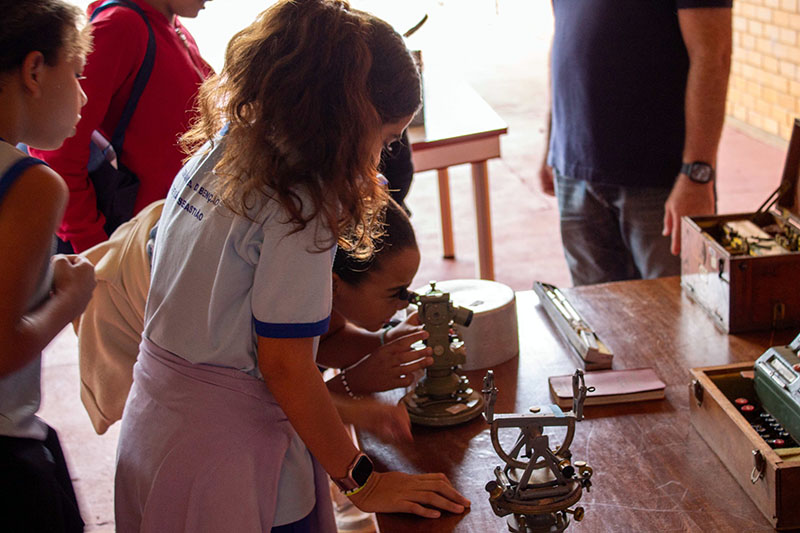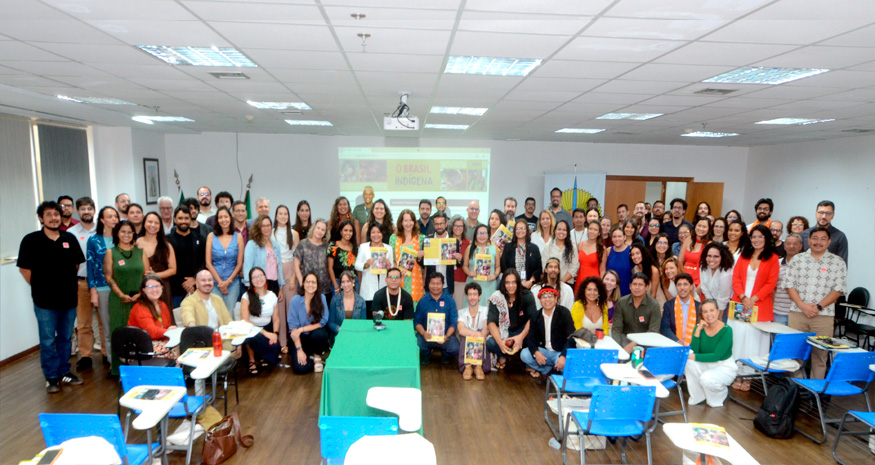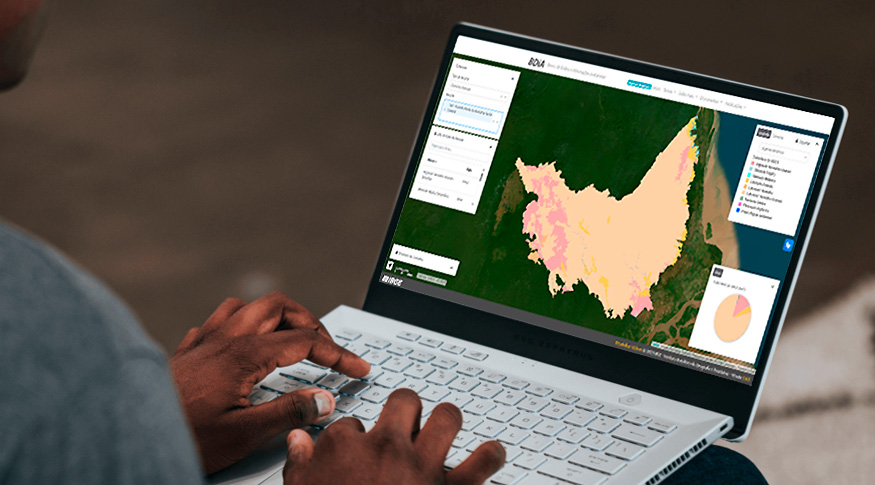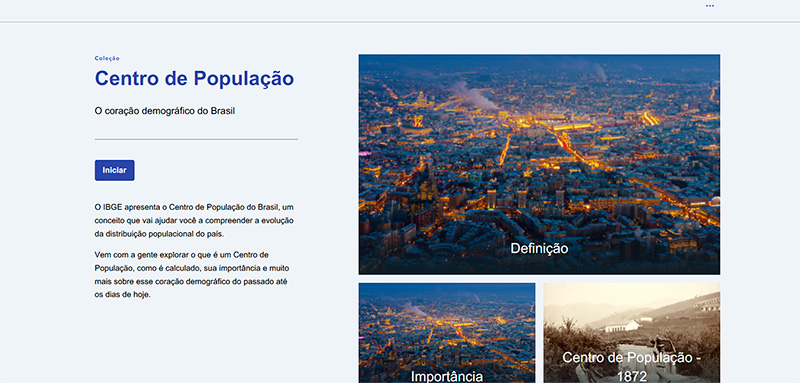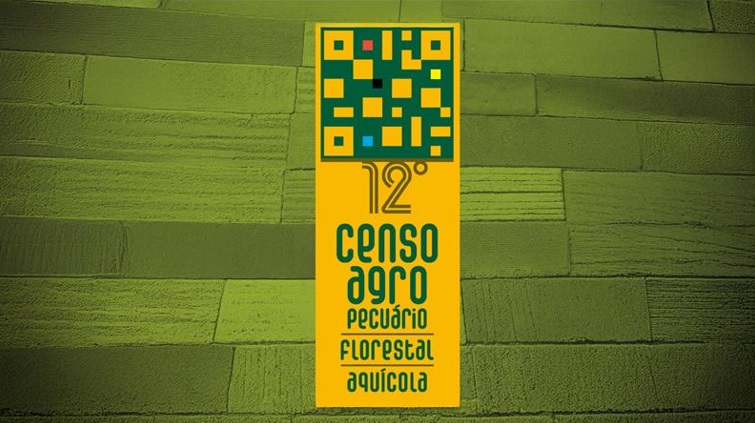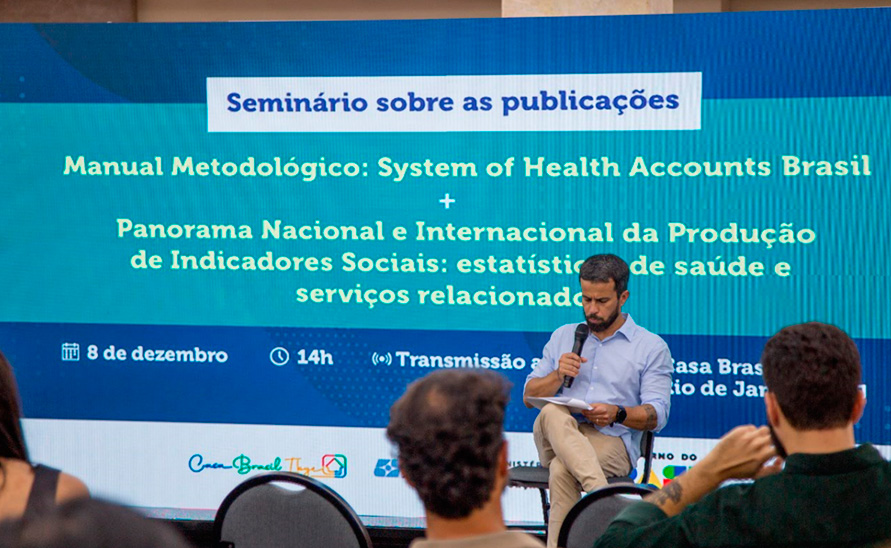Biodiversity
IBGE launches website dedicated to its biological collections
March 25, 2024 10h00 AM | Last Updated: March 26, 2024 12h48 PM
Highlights
- The IBGE launches a webpage with its biological collections, which bring together samples of animals and plants.
- The website presents the institute's three biological collections: Herbarium RADAMBRASIL, located in Bahia, and Herbarium IBGE and Zoological Collection, in the Federal District.
- The page presents a little about the history and evolution of the collections, also bringing detailed information about the specimens, including high-resolution photographs.
- The new IBGE page is aimed at students, researchers, educators and the general public interested in knowledge and conservation of biodiversity.
- The IBGE publishes data from its zoological collection of fish, insects, birds and mammals in the Brazilian Biodiversity Information System (SiBBr).
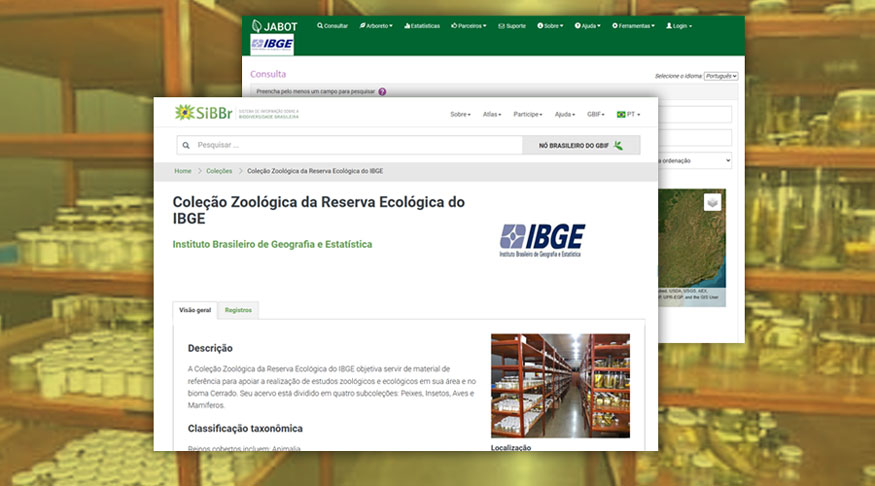 Website dedicated to IBGE's biological collections will make the institute's inventory available to more people
Website dedicated to IBGE's biological collections will make the institute's inventory available to more peopleStarting this Monday (25), the IBGE will make available a new webpage dedicated to its biological collections, which are located in the institute's Ecological Reserve in Brasília (DF) and in the Botanical Garden of Salvador (BA). As repositories of samples and organisms, they provide essential data for scientific studies in various areas, such as research in taxonomy, botany, zoology and ecology. Furthermore, they play a fundamental role in supporting conservation initiatives, allowing the assessment of the status of species and ecosystems, being fundamental for educated decisions on natural resource management and conservation policies.
Given the importance of this type of information, the IBGE has worked alongside other institutions with the aim of making the data accessible to researchers, students, educators and those interested in the topic of biodiversity. It is possible to visit the collections in person or consult online databases, where you have the option of downloading the content and accessing high-resolution images of specimens.
“Biological collections are the basic infrastructure for all kinds of research linked to biodiversity. Based on them, species are described, genetic studies are carried out, ecological information is obtained, among other possibilities”, explains Leonardo Bergamini, Biodiversity analyst at IBGE. According to him, “the analysis of this data allows researchers to identify changes in species populations, their geographic distributions and ecosystem interactions, which are fundamental to understanding the economic value of ecosystem services and guiding conservation practices, sustainable management and environmental policies”.
Founded in 1977, the IBGE Herbarium in Brasília, which is located within the institution's Ecological Reserve (Recor), houses a significant collection of plants from the cerrado and specimens from other regions. There are also some related collections of samples of fungi, wood and fruits, totaling around 85 thousand specimens. The IBGE Ecological Reserve also houses the Zoological Collection, made up of subcollections of fish, insects, birds and mammals. With more than 12 thousand lots of fish and 70 thousand specimens of insects, it constitutes a biodeversity reference for the Cerrado.
“The IBGE herbarium in Brasília has been a reference in scientific circles for a long time, known nationally and internationally. With the launch of the website, more people will have the opportunity to learn about this important part of the work carried out by the institute in the area of biodiversity”, says Marina Resende, IBGE technician responsible for curating the Brasília herbarium.
The RADAMBRASIL Herbarium (HRB), located in the Salvador Botanical Garden, was created in 1980 as part of the project of the same name. The place stands out for representing the flora of the North and Northeast regions. With more than 52 thousand specimens, its diverse collection is a valuable resource for botanical studies. According to Eric Carvalho, IBGE technician responsible for the herbarium, the work carried out at the HRB involves “local studies on plant biodiversity in Salvador's urban forests, with the participation of undergraduate students doing their final papers, master's students in biology and herbarium interns.” He recalls that, this year, the HRB is starting joint botanical collection actions with the IBGE Ecological Reserve herbarium team.
SiBBr now dispalays part of the IBGE zoological collection
Also as of today, data from the IBGE zoological collection of fish, insects, birds and mammals was added the collection of the Brazilian Biodiversity Information System (SiBBr). The samples that make up each subcollection were obtained during field expeditions, and through donations and exchanges with other institutions. The items and associated data were already available for in-person consultation and, now, a digitized part of the collection is being published online for the first time, with the support of SiBBr.
“Through the partnership with SiBBr, the reach of this information becomes greater, while it brings together and makes available a large part of the data on the country's biodiversity, it is also the Brazilian 'arm' of the GBiF (Global Biodiversity Information Facility), with global reach”, adds Mr. Carvalho.
SiBBr, a federal government platform managed by the Ministry of Science, Technology and Innovation (MCTI), was created in 2014 with the function of storing data about Brazilian biodiversity and ecosystems, and making it available . The tool provides information to public bodies aimed at conservation and sustainability. National teaching and research institutions, public or private, research projects and programs and thematic networks are the main data providers for SiBBr.
“This kind of data not only enriches our understanding of biodiversity, but also boosts the economy and innovation. Hence the importance of investing in the maintenance and expansion of these collections, for the continued benefit of society and the environment. By making its collections available, the IBGE fosters transparency and collaboration in studies related to biodiversity”, concludes Mr. Bergamini.



